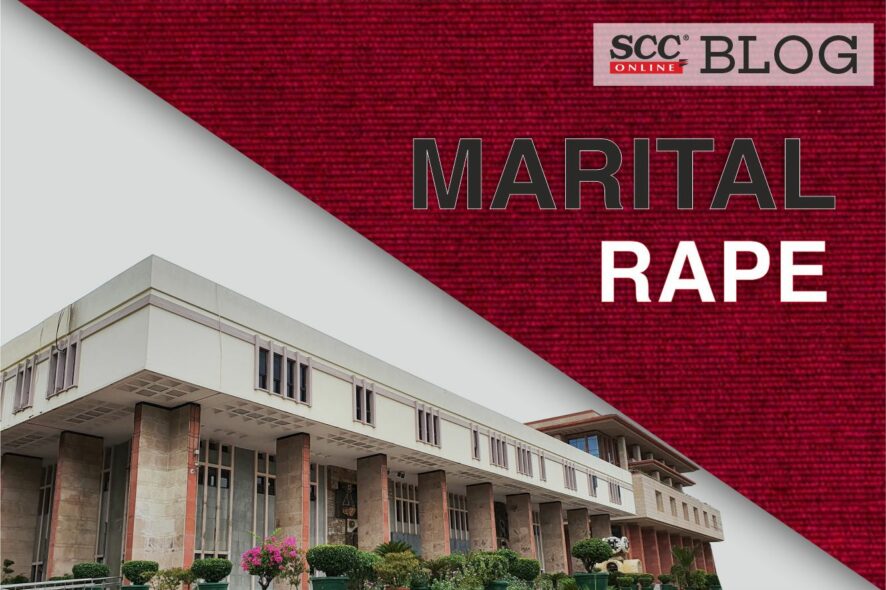In the Split verdict on Criminalisation of Marital Rape Exception (MRE), the Division Bench of Delhi High Court pronounced a 393-Pages Judgment, wherein the Justices Rajiv Shakdher and C. Hari Shankar while disagreeing with each other on various issues, very significantly pointed out the issue if “NEW OFFENCE”.
Let’s break it down
In the opinion of Justice Rajiv Shakdher, on striking down MRE, no new offence would be created and for the said, following reasons were laid down:
- Since the stated object of the rape law is to protect women from sexual abuse of the worst kind, there is no perceivable rationale for granting impunity to an offending husband in the context of marital rape. Thus, if MRE is exercised, all that would happen is, it would extend the ambit of Section 375 IPC to even offending husbands.
- If the ingredients of the offence has been changed, then a new offence/new crime would have been created. All that would happen if MRE is truck down is that the offending husband would fall within the ambit of the offence.
- Reading down, filling gaps (casus omissus) and/or excising parts of an offending provision contained in a statute is a legitimate judicial tool employed by courts for severing what is unconstitutional and retaining that which is construed as lawful.
- MRE seeks to ring-fence the offender based on his marital relationship with the accused.
- What is principally punished under the criminal law is the act of omission or commission, as etched out in the IPC. The penal law is act/omission centric and, in most situations, is neutral to who the perpetrator of the crime is.
The ratio of the judgment of the House of Lords in R v. R in Justice Shakdher’s opinion was squarely applicable, both for the proposition that striking down MRE does not create a new offence and that if such step is taken, the Court need not leave the matter to the legislature.
Justice C. Harishankar’s Opinion
The proscription on Courts creating an offence by judicial fiat operates as a restraint even on the exercise of the power to strike down a legislative provision as unconstitutional, said Justice Shankar.
- Judges sitting in courts cannot, on the basis of arguments of Counsel, howsoever persuasive, create offences, or pass judgements which would result in an act, otherwise not an offence, being rendered an offence.
- A court cannot legislatively stipulate the punishment for the offence. If the Court is not empowered to prescribe punishments, equally, the Court cannot, by its order, convert an act which, prior thereto, was not an offence, into an offence.
[RIT Foundation v. Union of India, 2022 SCC OnLine Del 1404, decided on 11-5-2022]







